Web Security


Stepan Suvorov
CTO @ Studytube

Information Security Masters Degree
Agenda
- What is security?
- Tokens
- JWT
- Transfer
- Storage
- SQL Injection
- XSS
- CSRF
- Project dependencies
- Content Security Policy
- HTTPS
What is Security?
- Prevent vulnerabilities
- XSS
- XSRF
- ...
- Access Management
- authentication/authorisation
- ACL
Authentification
vs
Authorization


-
Almost every web application needs to make authorization decisions
-
Authorization is about checking if an entity has the proper privileges for an action
-
Authorization requires the notion of the identity of the entity performing the action
-
-
Authentication is about verifying that an entity is who it claims to be
-
In web applications, authentication is often done with a username and password
-
Authentication happens once, and the authenticated state is kept in a session
-
-
Session management is the glue between authentication and authorization
-
It propagates the authenticated state throughout the session
-
Even stateless APIs depend on session data, to keep track of this authenticated state
-
Traditional Server-Side session-management
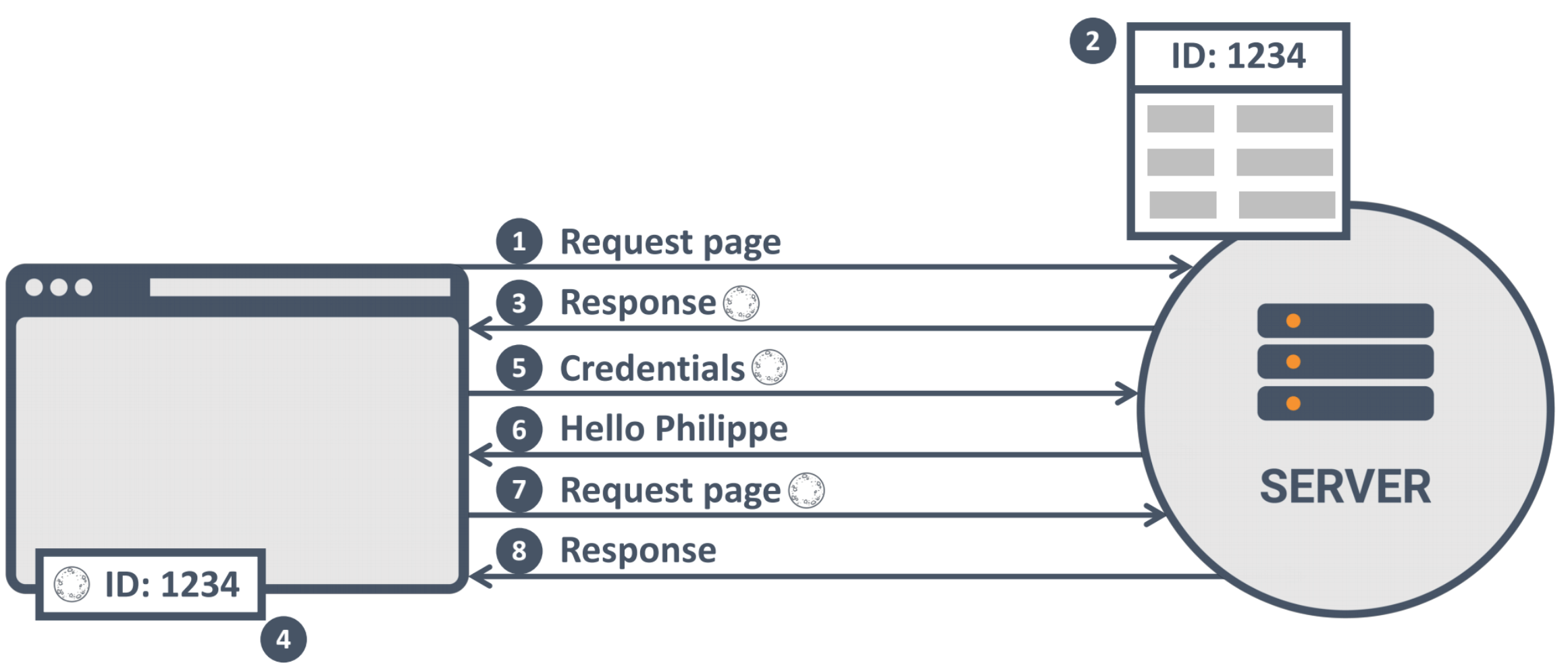
Modern Client-Side session-management
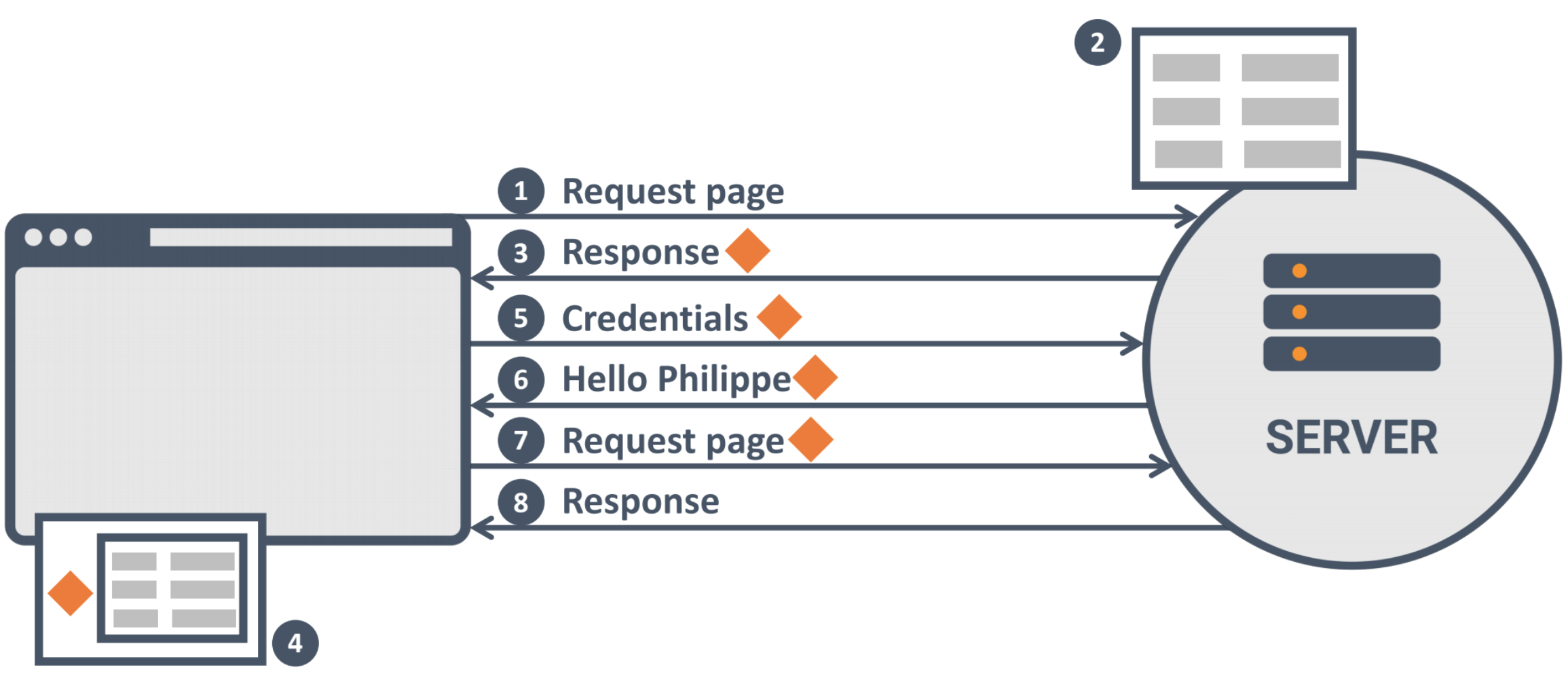
What's the best way?
3 Properties of Session-Management
- The locality
- The storage mechanism
- The transport mechanism
Where will you keep your session data? How will you represent your session data?
E.g., server-side vs client-side sessions, session identifiers vs self-contained JWT tokens
cookies vs localStorage vs SessionStorage
cookies vs authorization header
Server-Side vs Client-Side
- stateless backend
- no control
- lager requests
- encoded session object on client side
Server-Side
- Results in stateful backend
- Gives server full control (invalidate)
- Id to server side Object
Client-Side
Authorization based on JWT

JSON Web Token
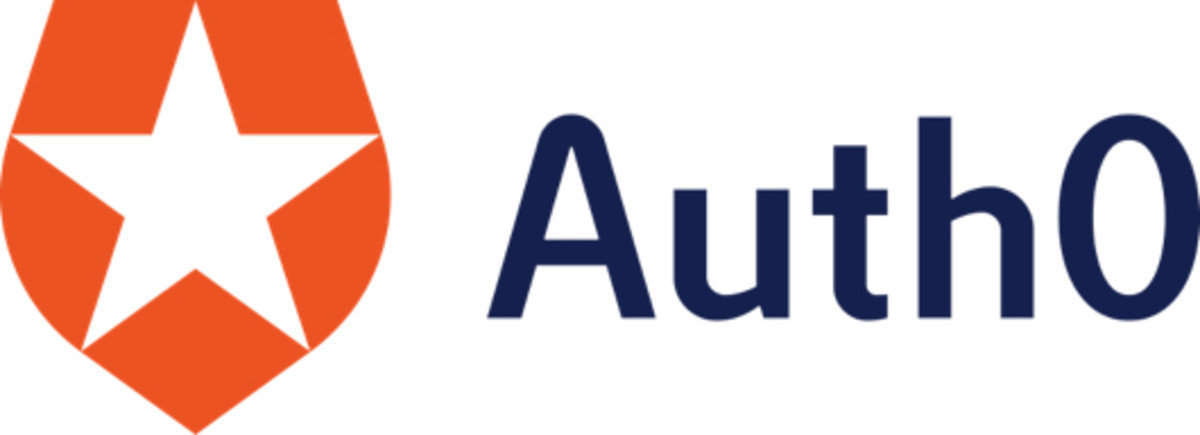
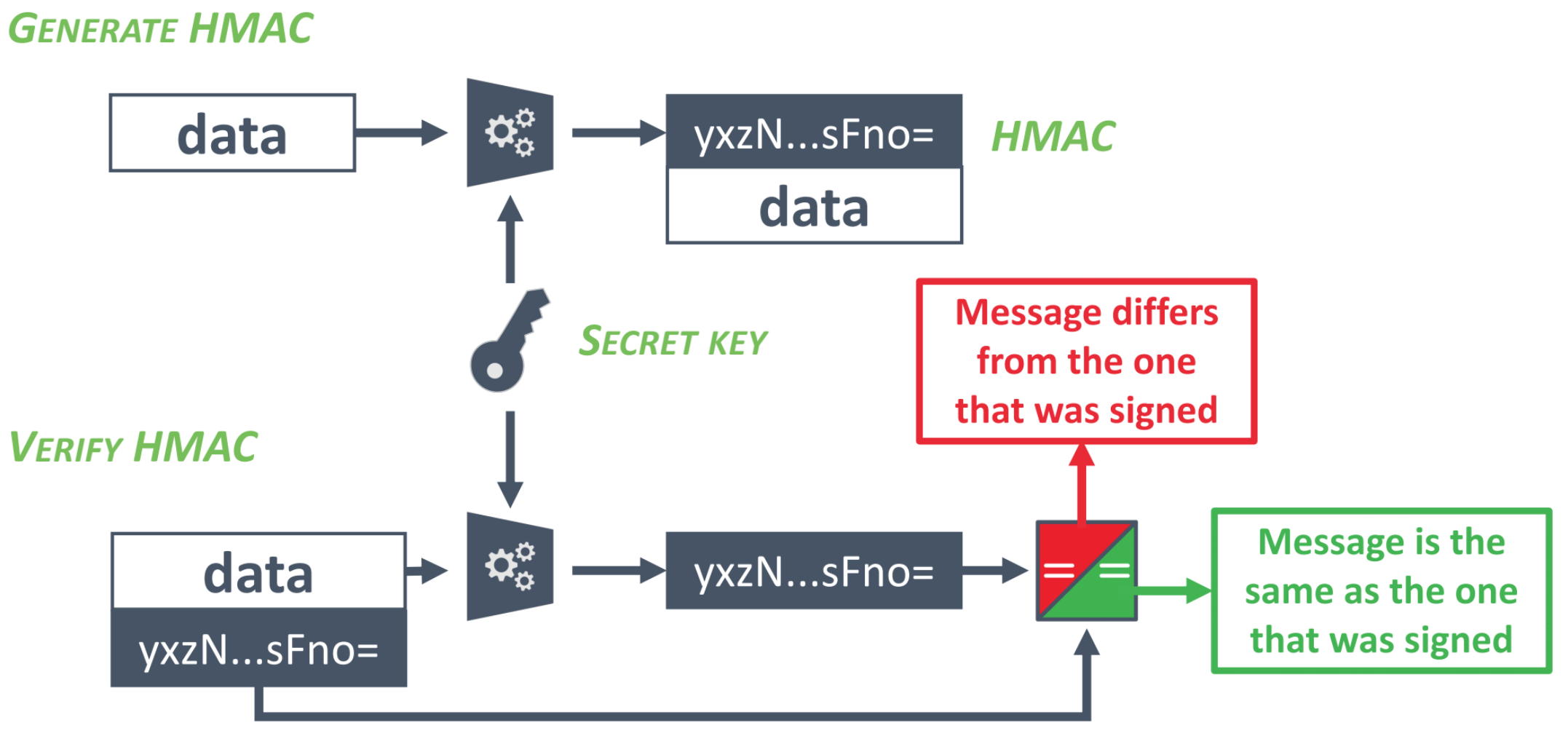
The storage mechanism
What are the difference between cookies and localStorage?
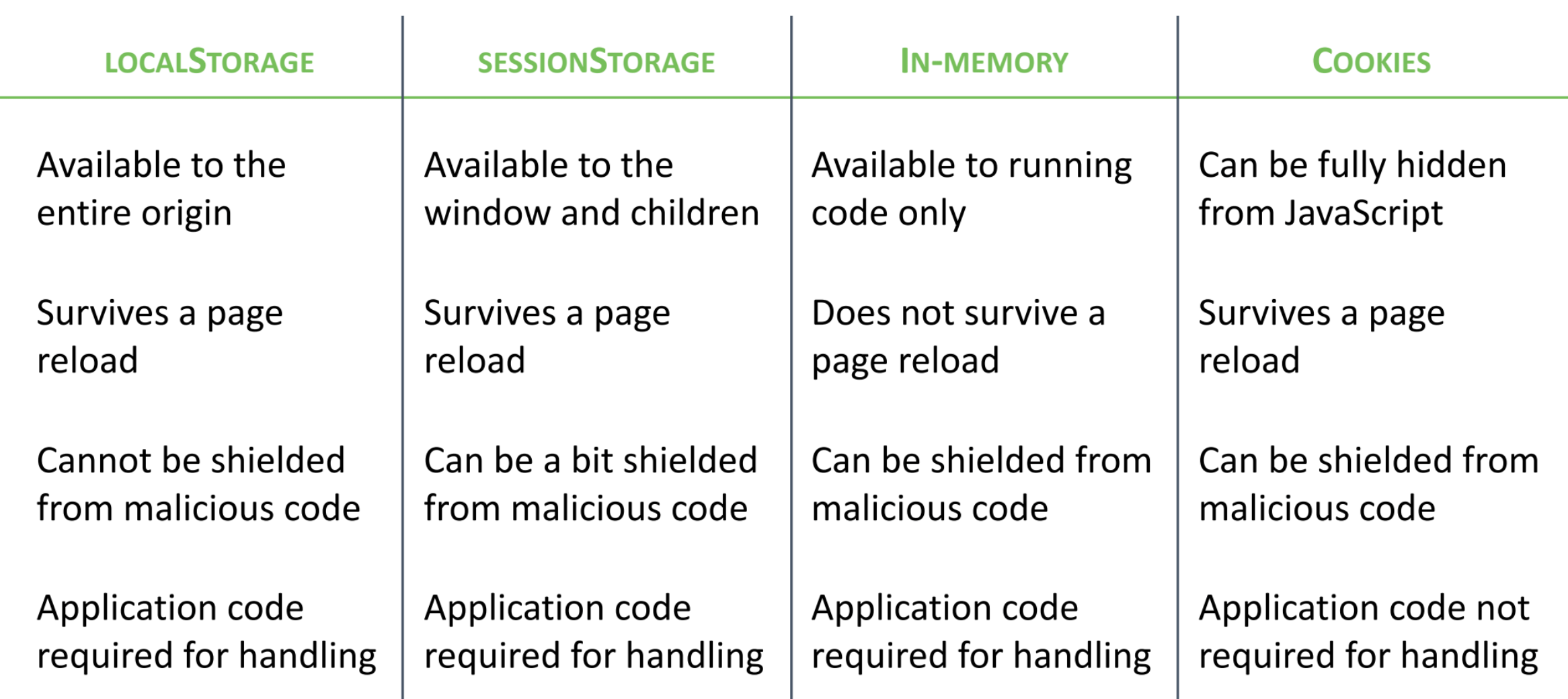
Can you spot security issue here?
export class TokenInterceptor implements HttpInterceptor {
constructor(public auth: AuthService) { }
intercept(request: HttpRequest<any>, next: HttpHandler): Observable<HttpEvent<any>> {
request = request.clone({
setHeaders: {
Authorization: `Bearer ${this.auth.getToken()}`
}
});
return next.handle(request);
}
}SQL Injections
What is SQL Injection?

`SELECT * FROM artists WHERE id=${id}`
How to prevent SQL Injection?
- Use mature DB-frameworks
- Use sanitization
- Always know the input
XSS
XSS
- Reflected
- Stored
- DOM-based
Reflected XSS
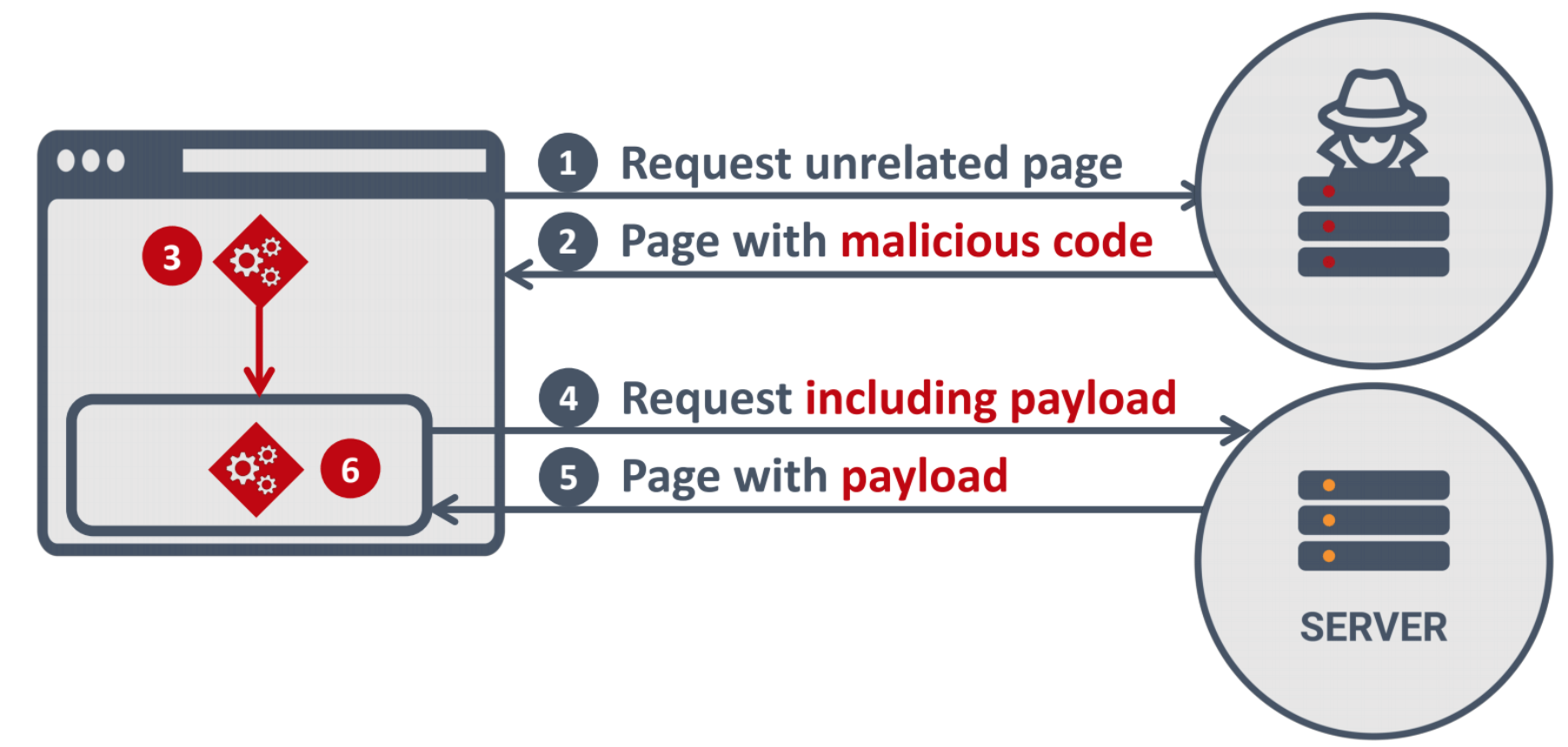


Stored XSS
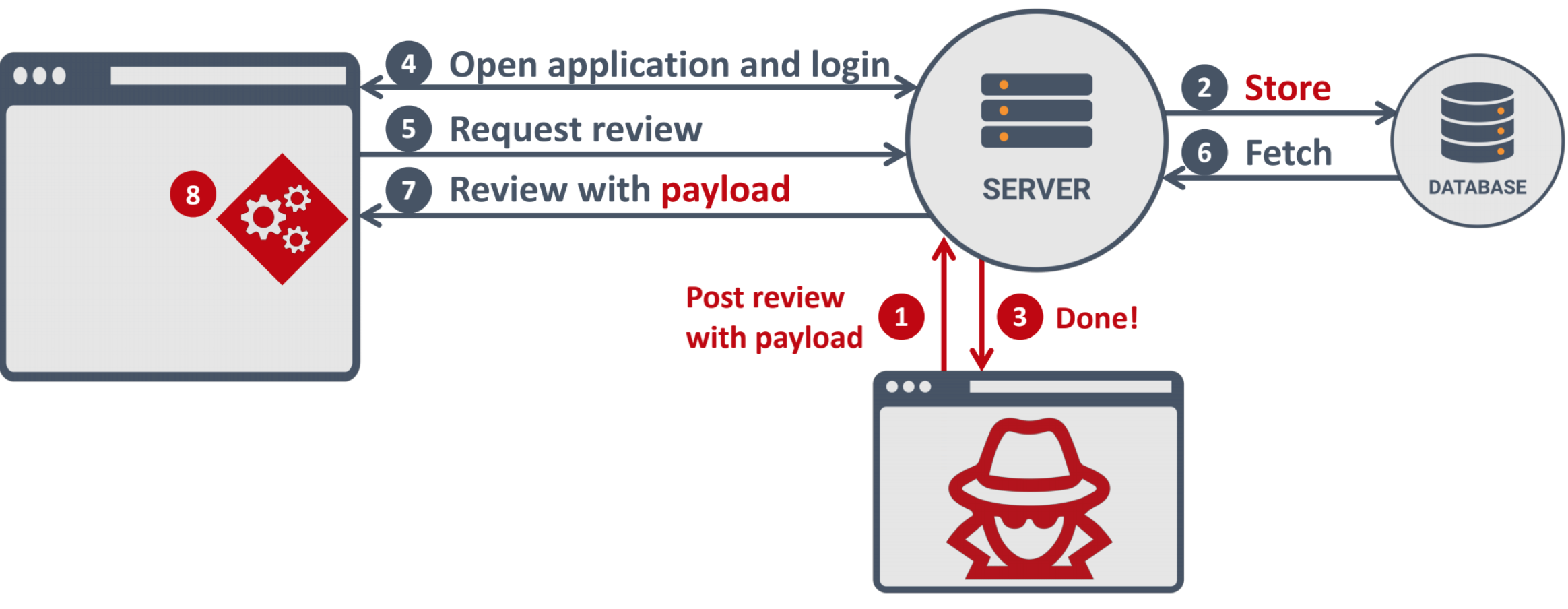
Sanitization in practice
Don't even think about rolling your own sanitizer!
DOM-based XSS
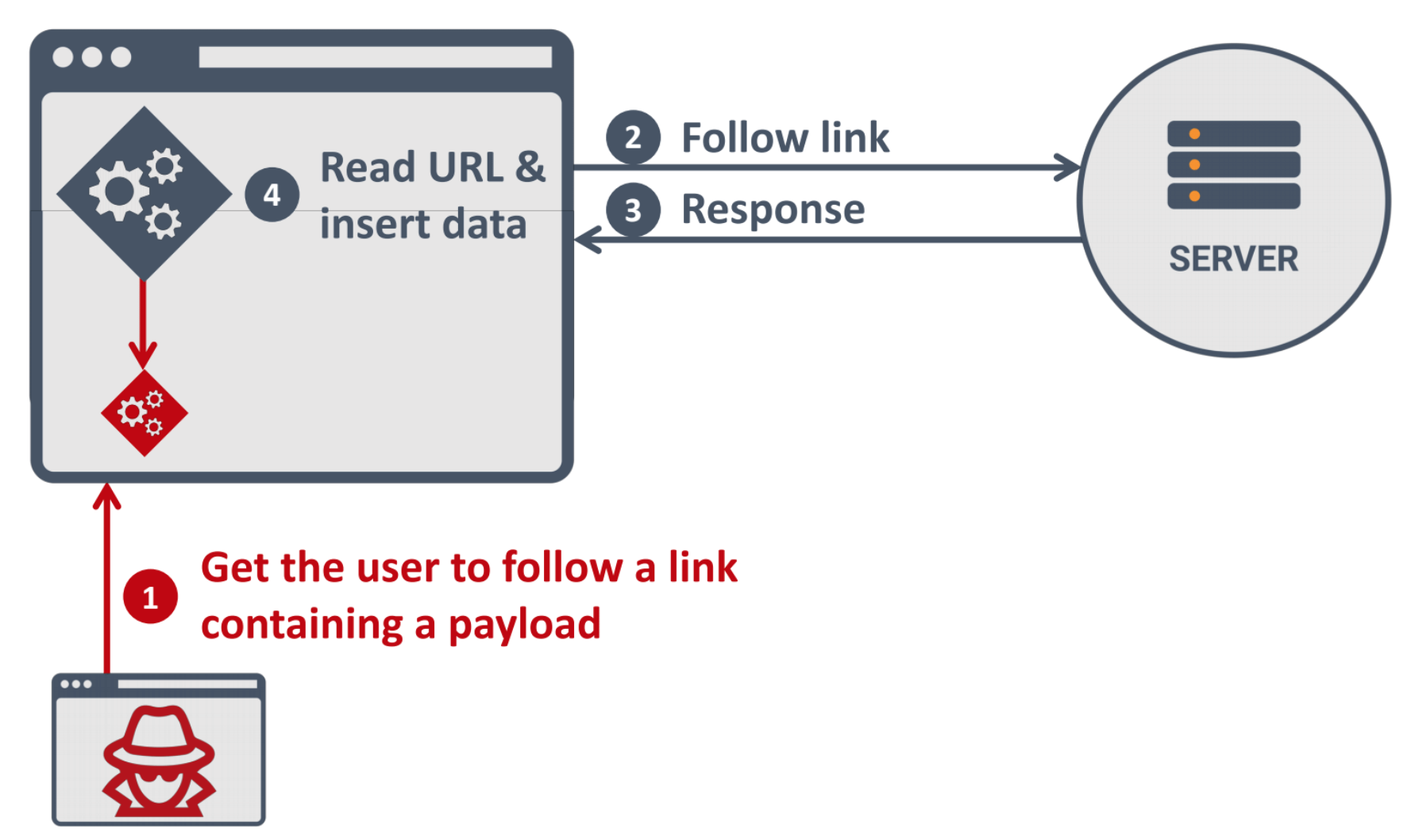


Angular against XSS
Sanitization out of box:
- HTML
- Styles
- Url
- Resource Url
bypassSecurityTrust*
- Angular controls the data in the template
- Data is always escaped for the right context
- HTML-bound data is sanitized by Angular
How can you bypass XSS filters?
$save_text = str_replace('script', 'span', $text);<ScRiPt>/* bad things happen here */</ScRiPt>
<INPUT TYPE="IMAGE" src="javascript:/* ... */;">
<imgsrc="xss.png" onerror="/* bad things happen here */">Are we safe now?
and what about
Template Injection?!
- never mix Angular with other dynamic page generation techniques
- use AoT
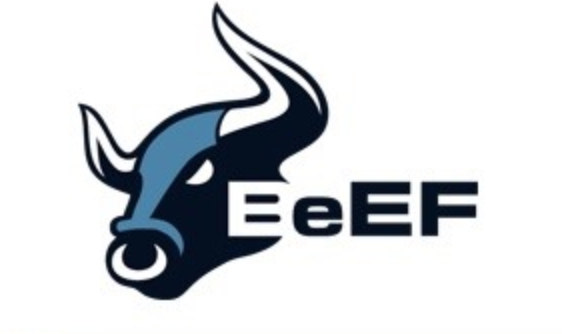
CSRF
CSRF
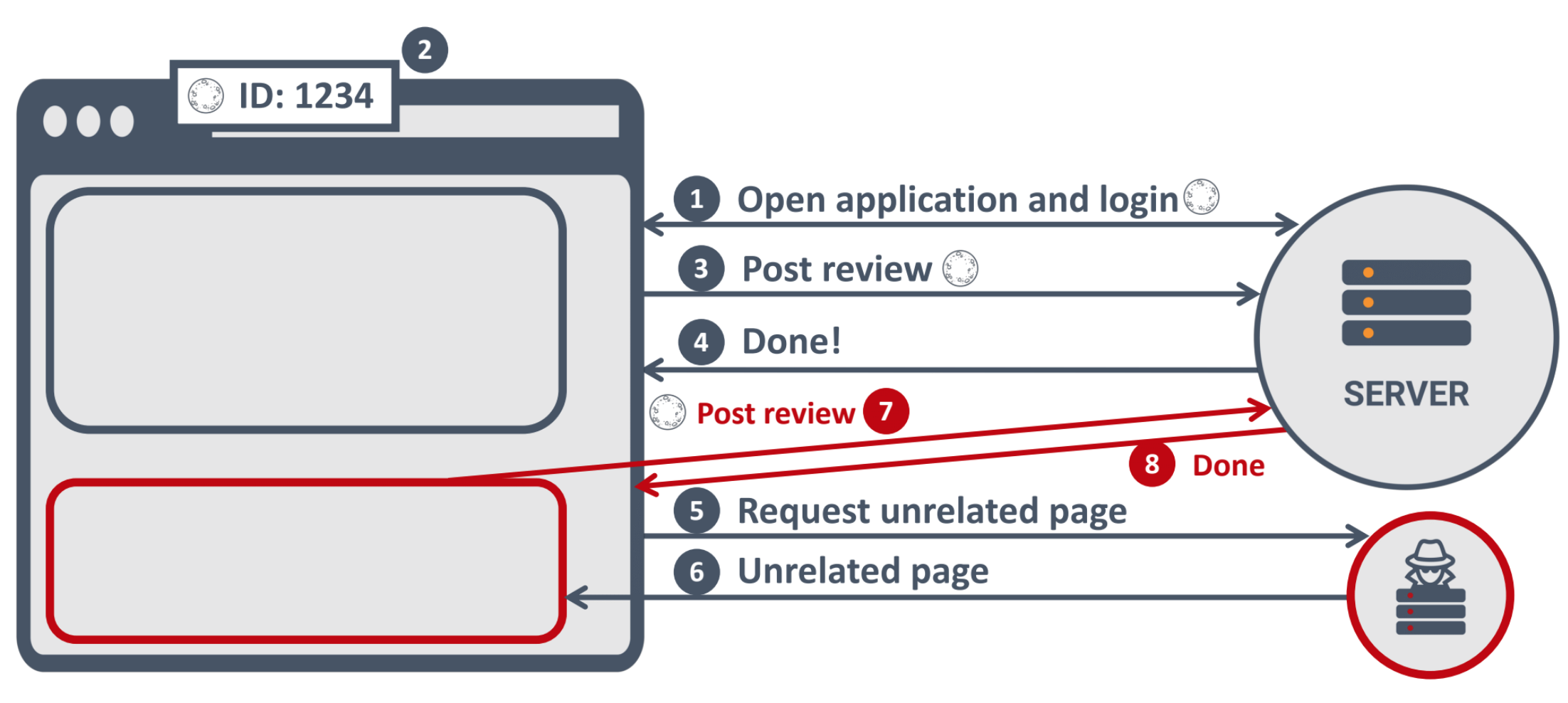
The essence of CSRF
- CSRF exists because browser handles cookies very liberally
- Many applications are unaware that any browsing context can send requests
- None of the cookie security measures covered so far helps here

The password cannot be updated by using this method.
However, the information that’s needed to reset the password can.

HTTP-Only does not help!
What to do against CSRF
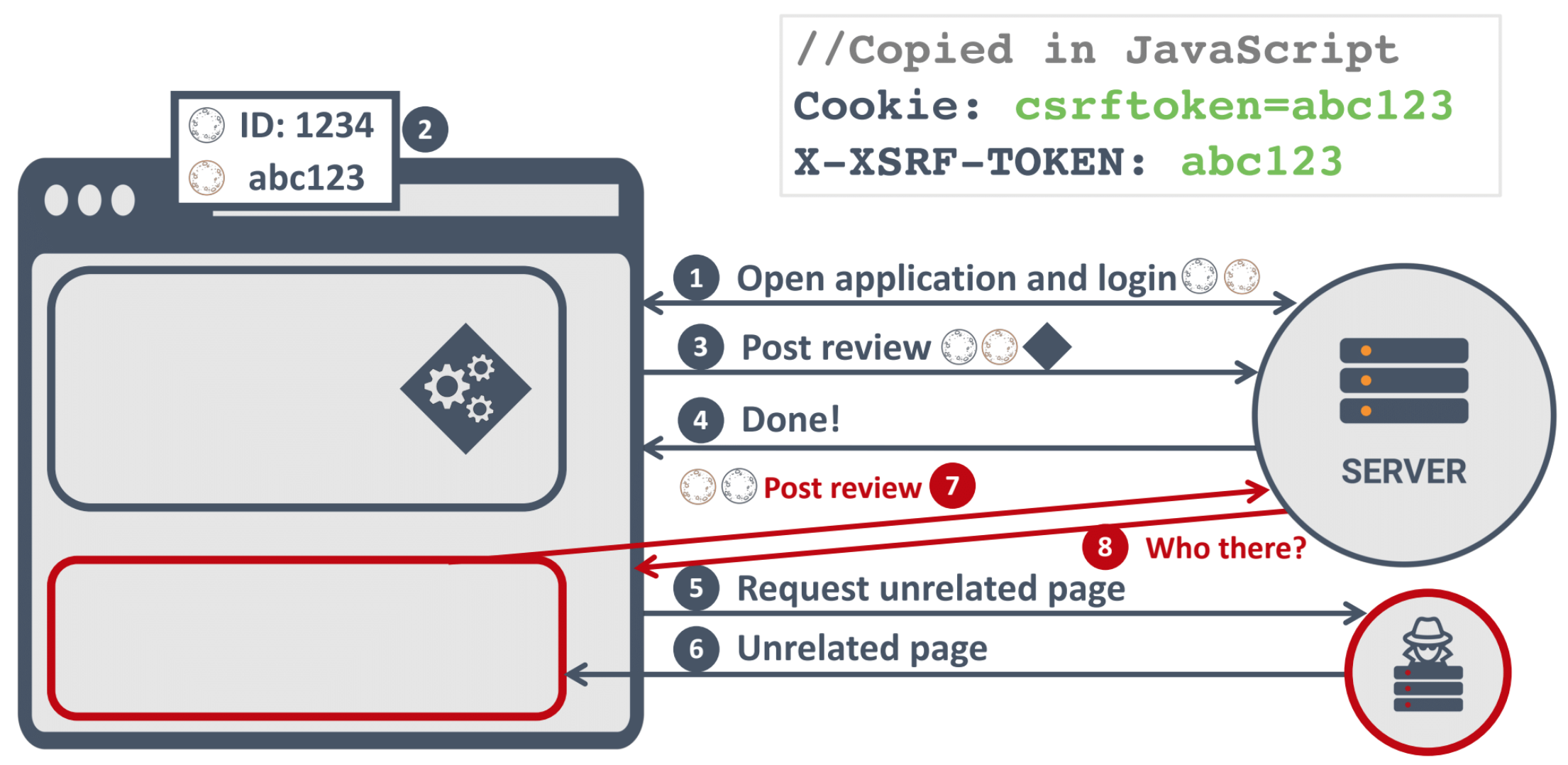
Dependencies
88.45% of the Alexa top 10,000 web sites “included at least one remote JavaScript library
Why these remote JavaScript inclusions is a problem?
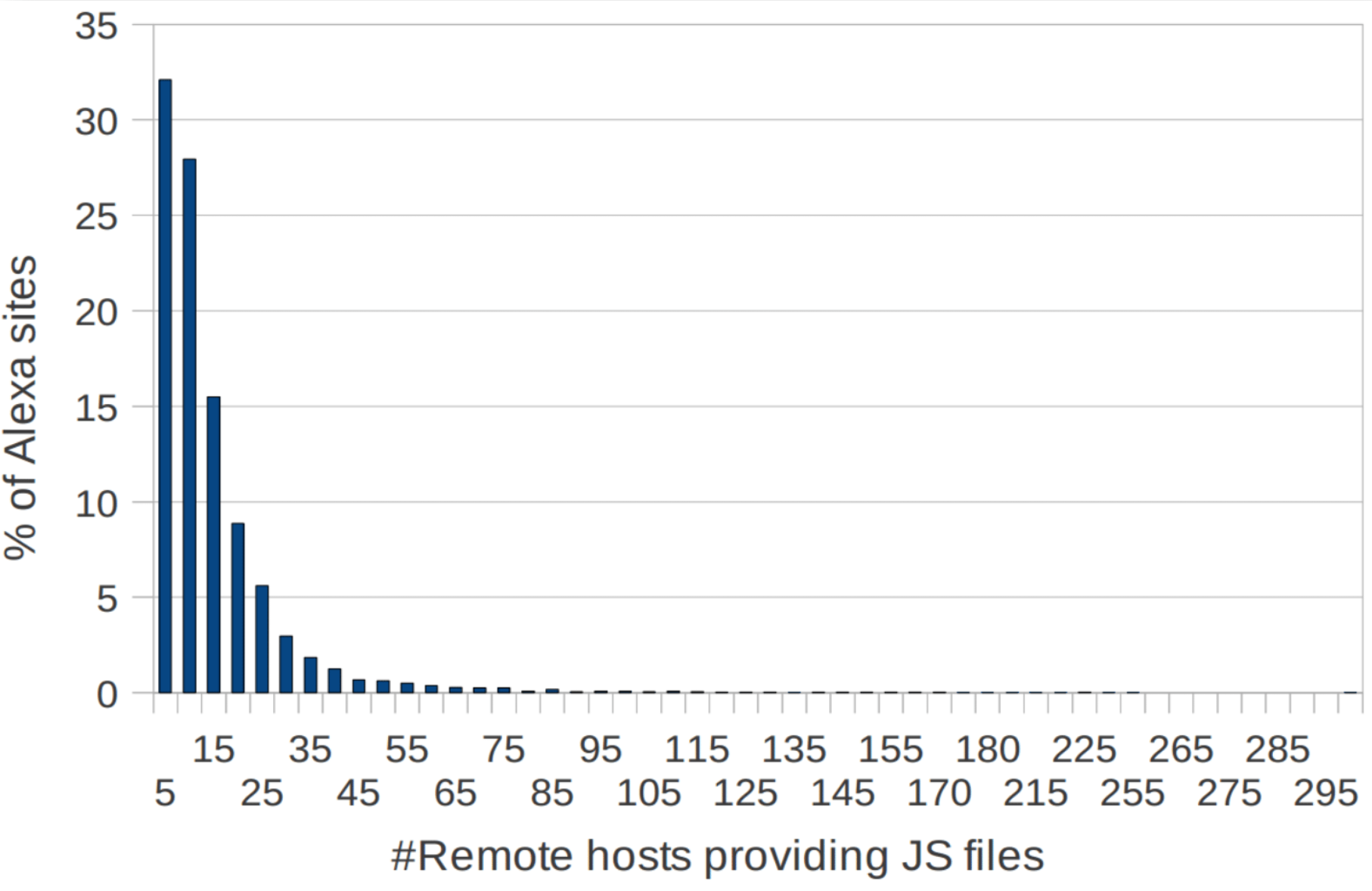
Are you loading something from CDN?
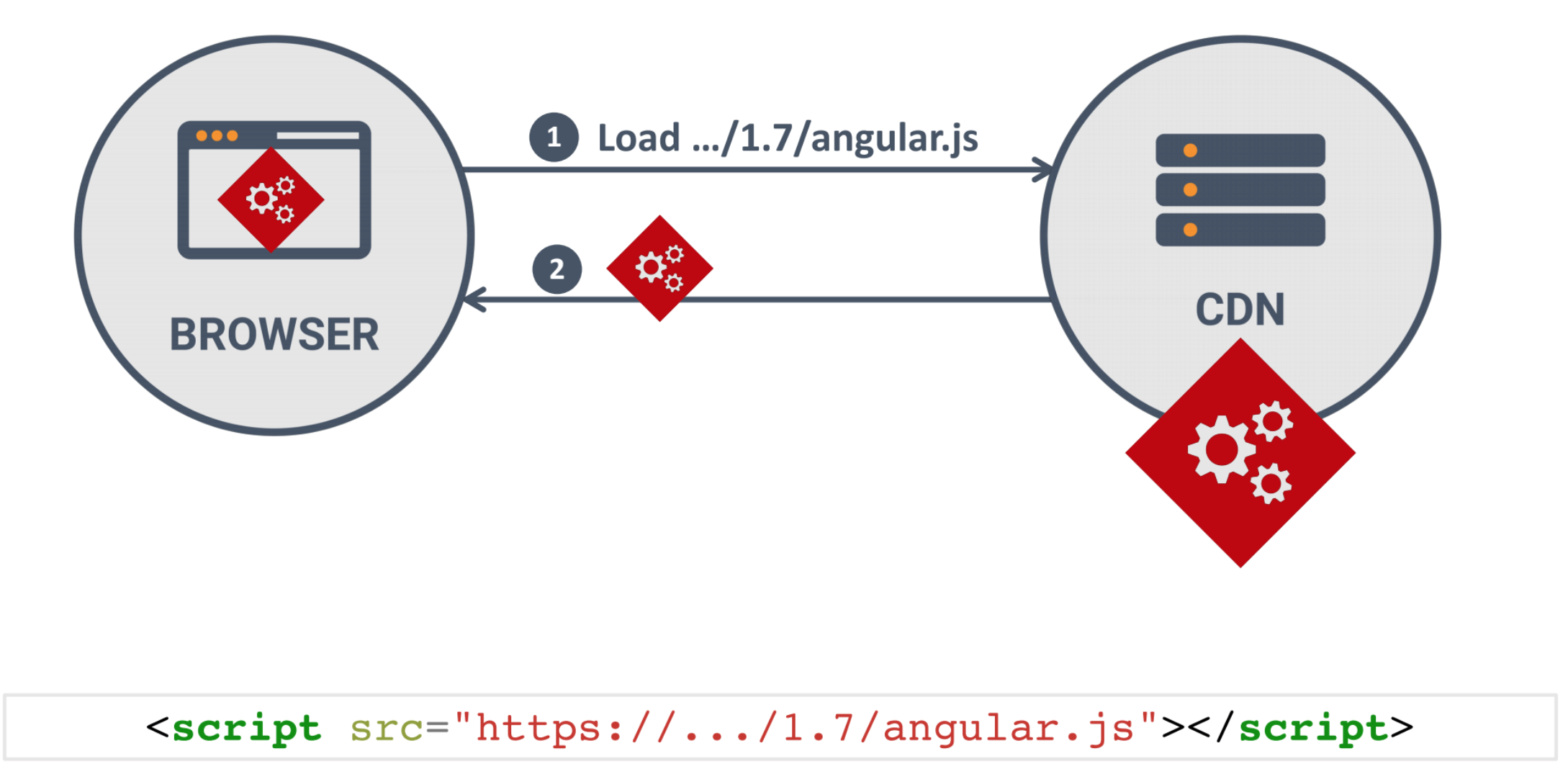
Subresource Integrity
- Integrity attribute can be added to script or stylesheet
- When loading the resource browser first verifies the hash
- The properties of the hash function ensure the security of this mechanism
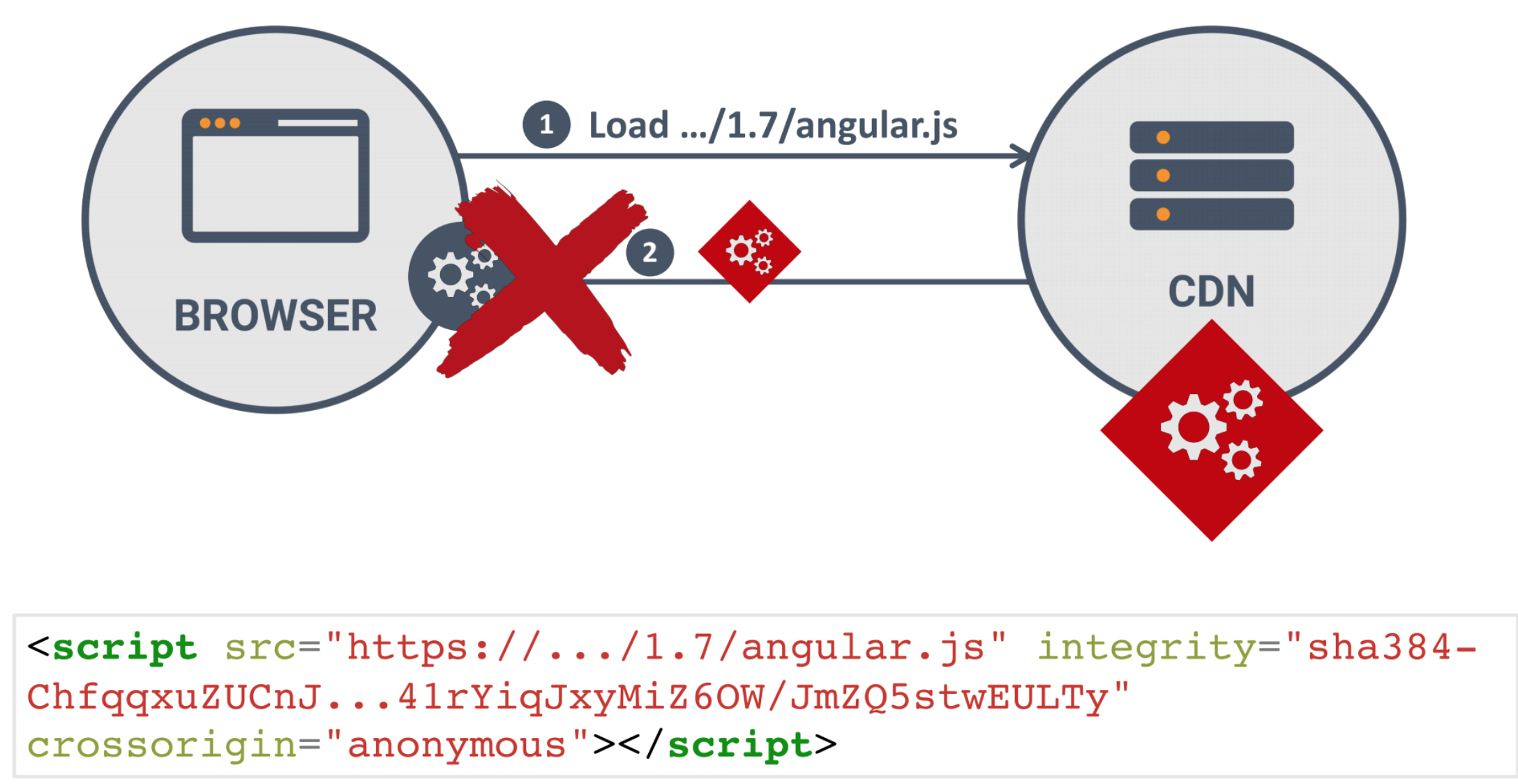
Do you know all your project dependencies?

True story

npm audit
npm install angularcli
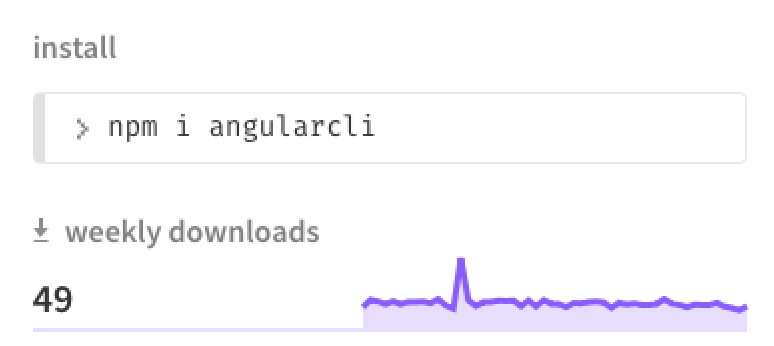
Content Security Policy
What does CSP do?
- allows you to restrict content on a page
- Whitelists define where content can be loaded from, everything else is blocked
- You can instruct the browser to send a report about a violation
- In report-only mode, the browser will send a report but will not block content

HTTPS
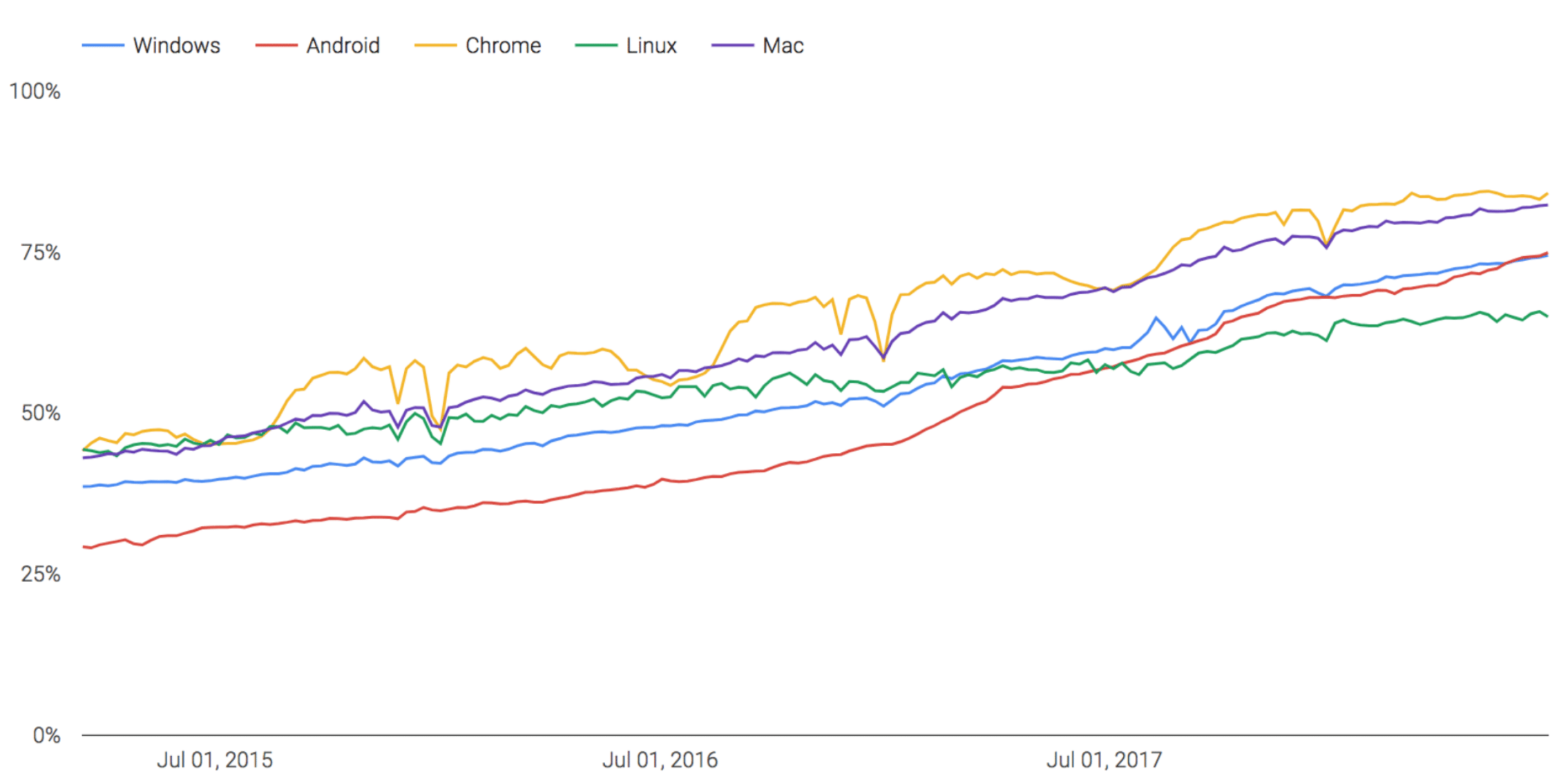
SSL vs TLS

What are the objections not to use Https?
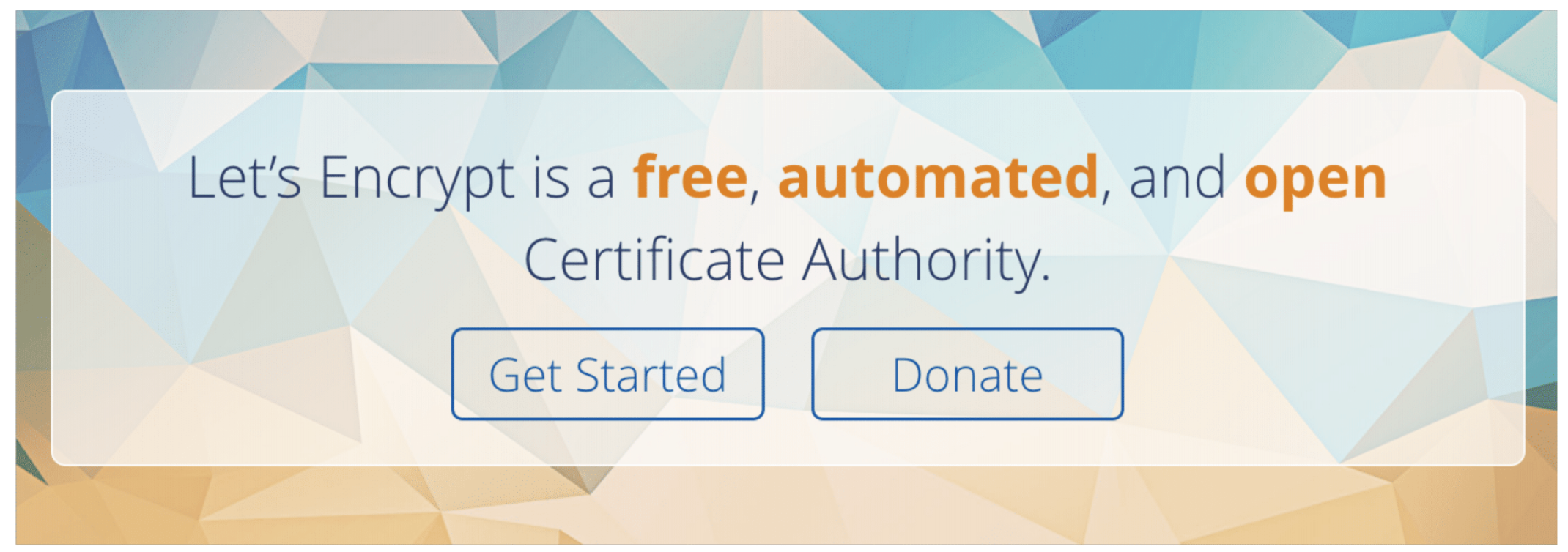
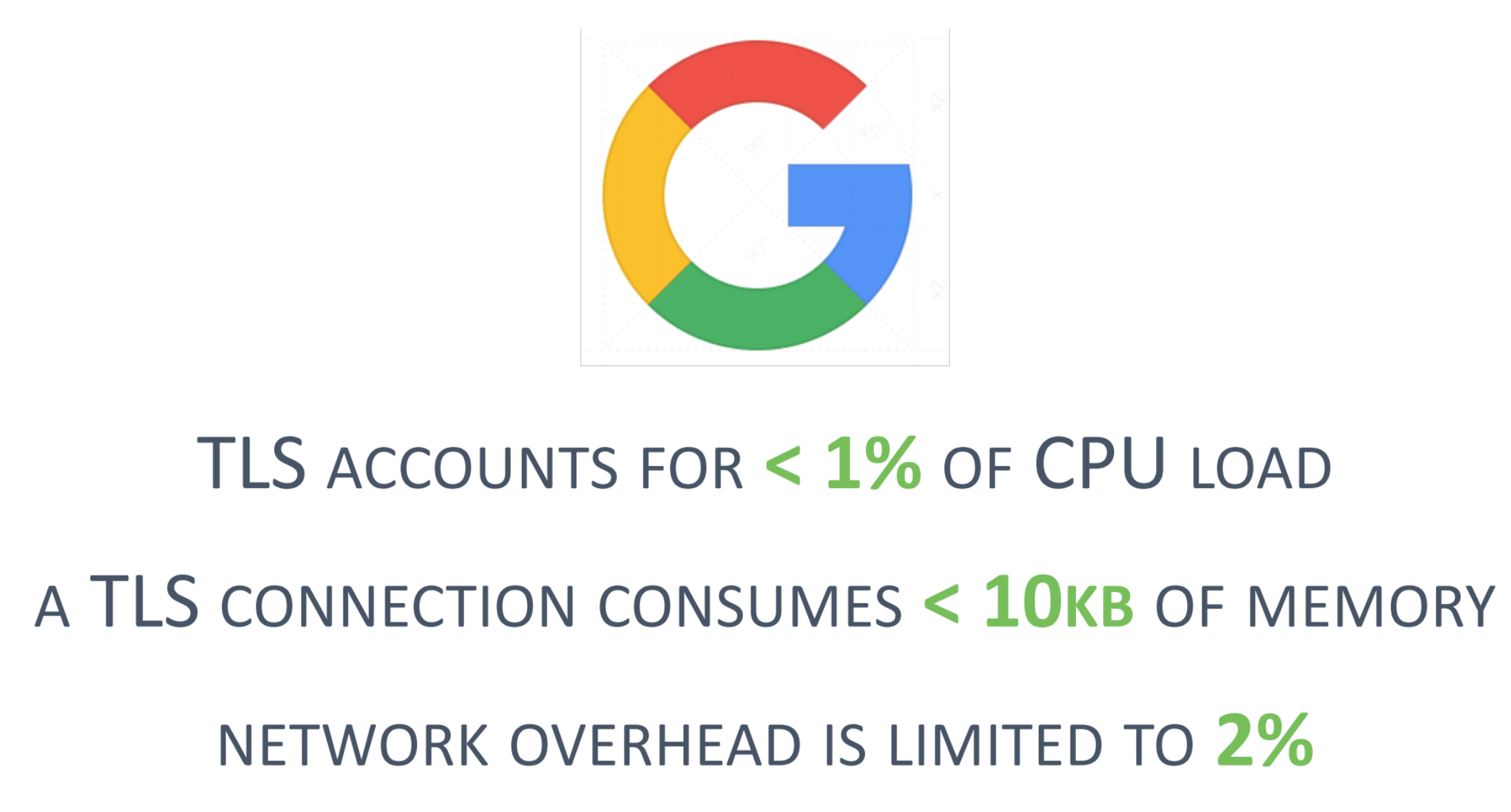
How can we get people to use the HTTPS version of the site?
Redirect

But
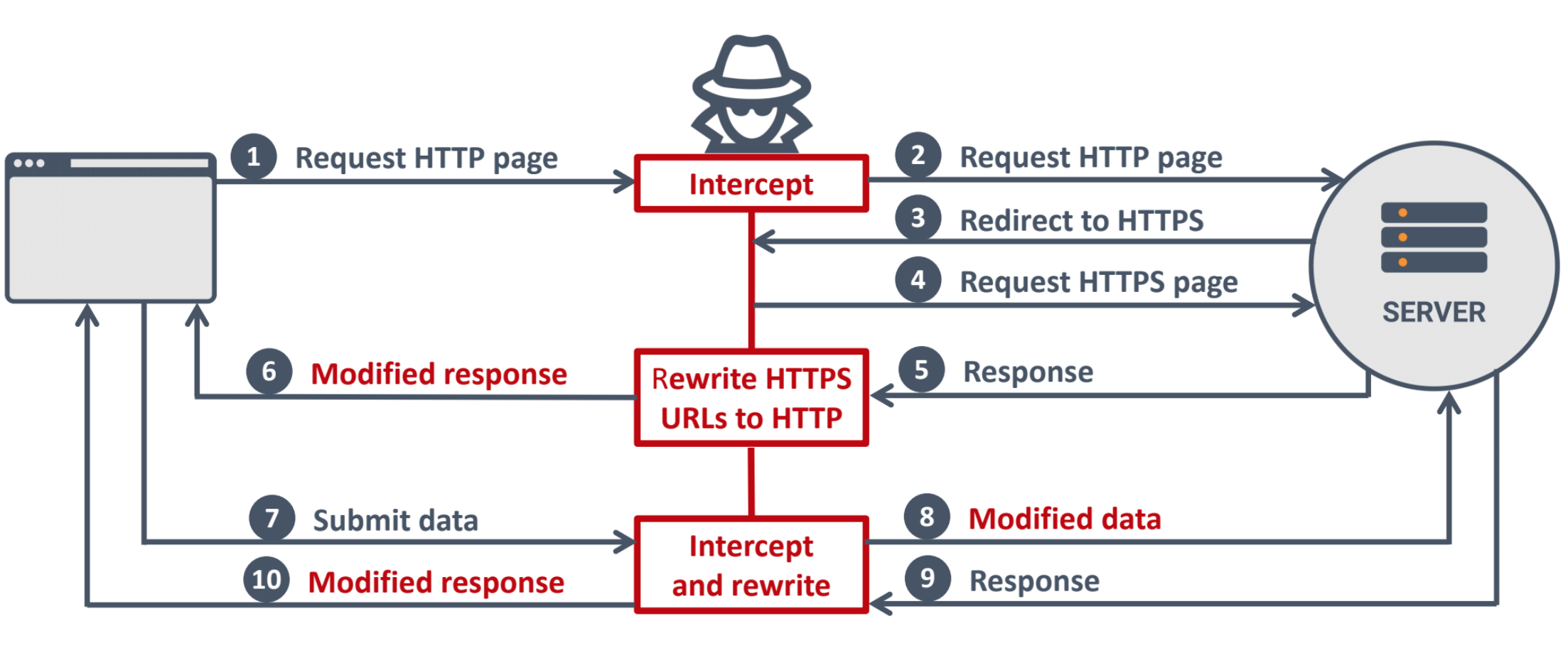
95% of HTTPS servers vulnerable to trivial MITM attack
HSTS
good news for browser support
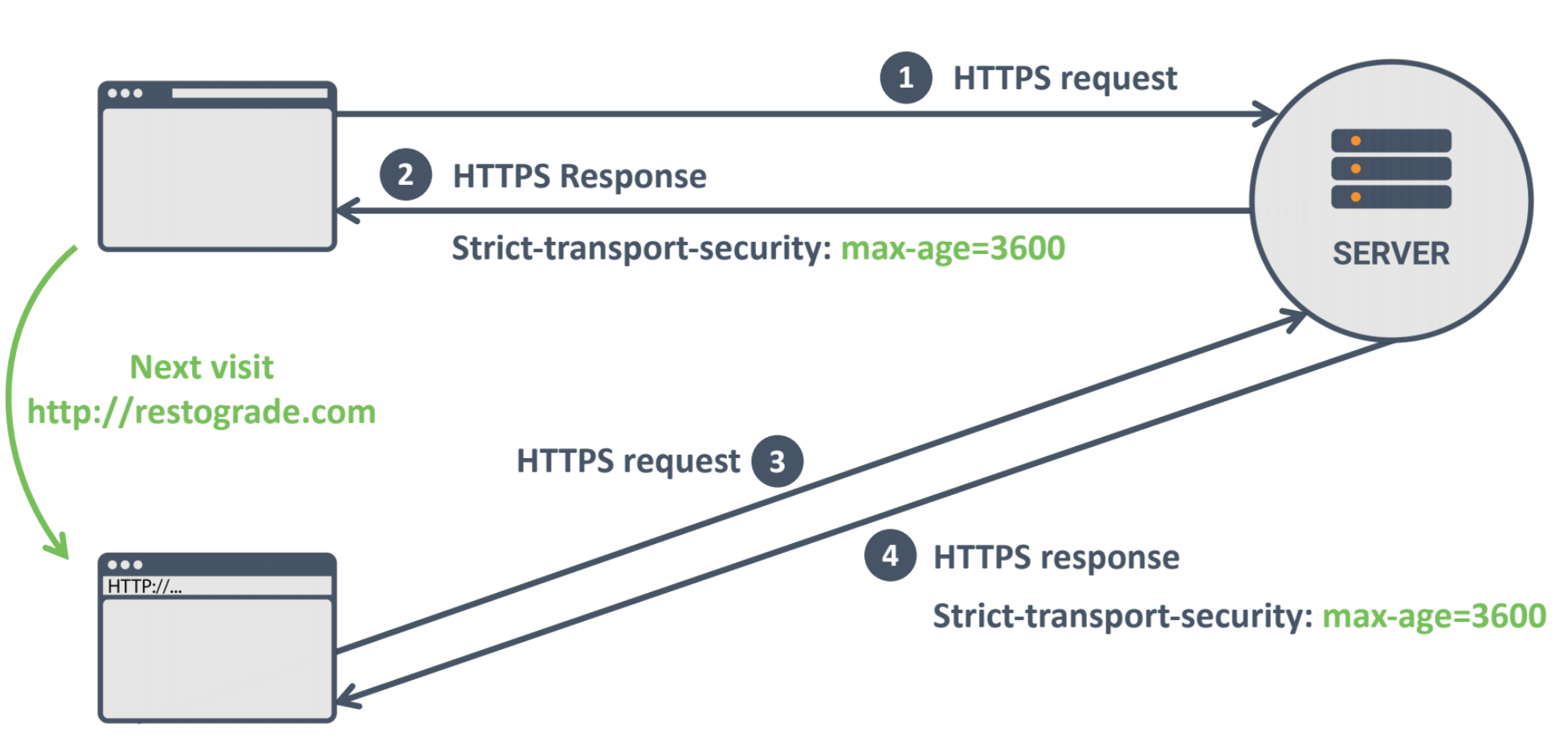
Bonus
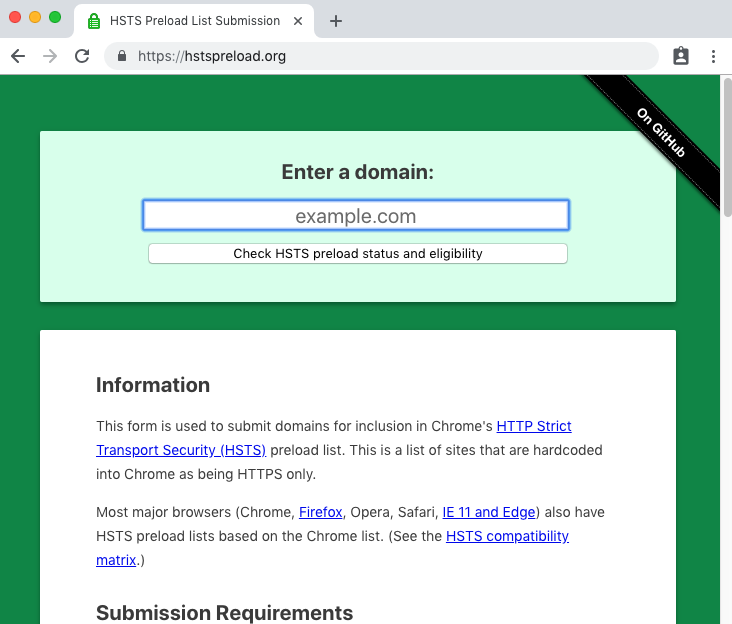

With great power comes great responsibility
Web Security
By Stepan Suvorov
Web Security
- 1,694



